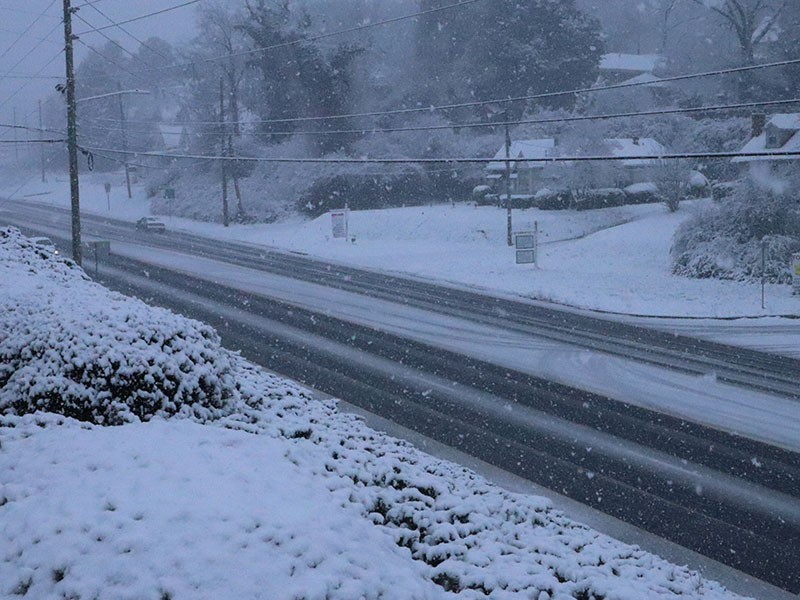While winter doesn't make its official arrival until Dec. 21, state officials are telling Georgians to prepare now so we're not caught off guard by any surprise snow, ice or frigid cold.
State Climatologist Bill Murphey with the Georgia Environmental Protection Division said at this juncture he's not expecting any extreme winter weather for Georgia because we remain in a La Nina pattern.
"As far as the longer-range forecast, we're in a La Nina pattern right now and that will persist through the wintertime. It's pretty much a slam dunk on that pattern continuing," Murphey said in a recent interview with AccessWDUN.
What that means is a drier and warmer winter, according to Murphey. But, he said, we shouldn't discount isolated cold spells.
"Now, also during a La Nina pattern, yes, we can get snow, but things in Georgia have to phase out right [for that to happen]." Murphey said. "You've got to have the cold air in place and then you've got to have Gulf moisture."
When snow or ice forms, Murphey said the northern part of the state usually gets the larger amount of accumulation, while the lower third of the state misses the brunt of winter weather.
Murphey said he's not concerned about a lack of rainfall over the winter months, mainly because the active tropical storm season brought record rainfall to many parts of the state.
"Right now, year-to-date, Atlanta, Columbus and Athens all are in the top five wettest years on record so far," Murphey said. Gainesville, he said, recorded the second-highest amount of rainfall of any year since records have been kept.
"They've already got 73.33 inches [for 2020]," Murphey said.
All of that to say Murphey does not expect any problems with drought even with a drier winter season.
Murphey also said Georgians - especially those who crave a good snow - should practice some forgiveness with forecasters. He said winter weather in Georgia is not easy to predict.
"You've got higher terrain to take into account, you get cold-air 'damming' which can come down the Appalachian mountains and that affects certain parts of the state more than others," Murphey said. Then, the cold air has to hit the moisture in the air just right for snow and/or ice to form. He said models can change rapidly, so forecasters have a challenge when it comes to predicting winter weather.
Murphey said he believes farmers are some of the best forecasters Georgia has.
"Farmers know a lot more than folks give them credit for," Murphey said. "I think they're some of the best meteorologists and climatologists out there...they can tell what's going on. They look at mid, short and longer range forecasts because that controls how they're going to plant and harvest."
Murphey said no matter how difficult winter weather is to predict, Georgians need to trust forecasters, mainly because cold weather can be dangerous weather. He said it is vital to dress appropriately for extreme cold and make sure to understand how wind chill can impact you if you plan to be outdoors. Frostbite is a real possibility, even in Georgia.
To find out more about how to prepare for winter weather in Georgia, follow this link to the Georgia Emergency Management Agency website.
AccessWDUN will have more stories later this week on Winter Weather Preparedness Week.

http://accesswdun.com/article/2020/12/961500/state-officials-georgia-winter-likely-to-be-mild-but-get-ready-for-isolated-cold-and-storms
